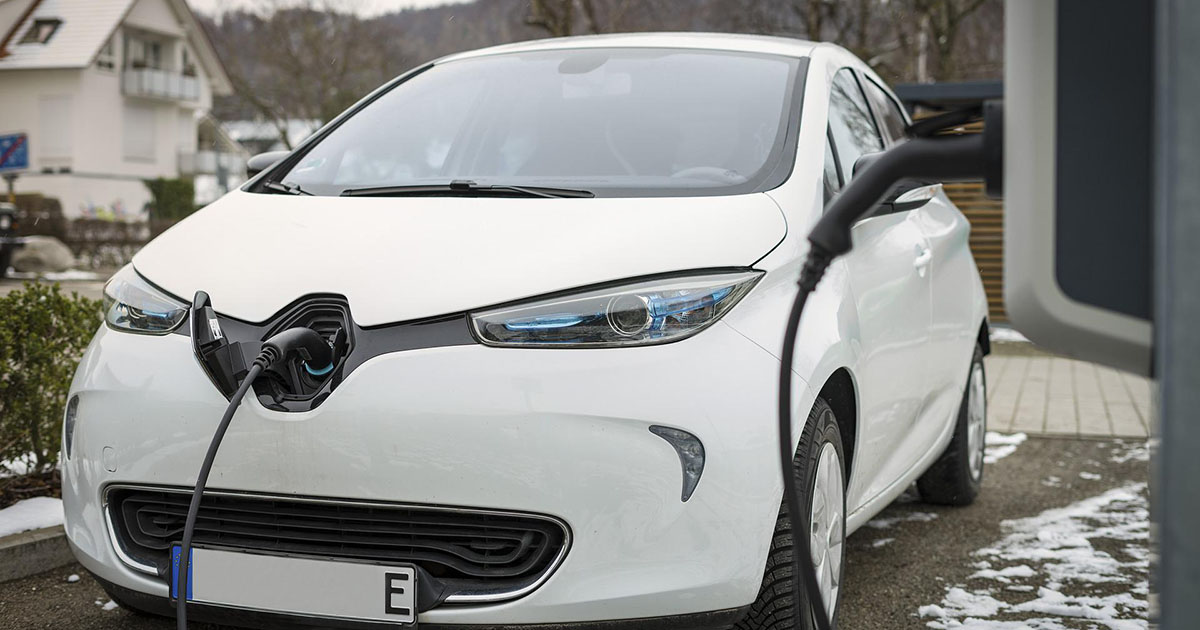
07 Nov 2023 Scott Shepard: October 2023: The Month the Net-Zero Dream Died
For years we’ve been warning CEOs about the absurdity of their net-zero emissions ambitions, and recent developments indicate that we’ve been right all along.
“The great public-private push to force adoption of new and unreliable technologies before they have been proven by the free market to be technologically and economically feasible has failed,” writes Free Enterprise Project Director Scott Shepard in a commentary published by RealClearMarkets.
His column is below.
A few weeks ago I reported on state elections in Germany that signaled that western polities – even in Germany, where the phantasm has held greatest sway – had given up on the idea of the green warriors’ dream of a net-zero future, and weren’t willing to pay the immense costs of chasing after unicorn-powered windmills.
Confirmation of this conclusion poured in throughout the rest of the month.
Industry has begun to recognize that investments in a “net-zero” future are not the path to “doing well by doing good.” The electric-vehicle market has collapsed, and car companies are retrenching. Mercedes-Benz’ CFO predicted a constrained and shrinking market as that company found it impossible to unload stock even at steep discounts. At home, GM had junked a joint venture with Honda to try to make “affordable” EVs, delayed opening of an EV truck plant, abandoned its EV manufacturing targets, and has offered no forecast of when those targets might be met. Ford has stopped sending out EV trucks to dealerships after some refused to accept new shipments, given how many unsellable versions they already had in stock, and will renumber the unsold remainders as 2024 models.
Toyota’s Chairman Akio Toyoda, who has long had a clearer vision about the risks and dangers of EVs than his peers, rightly took a discreet bow, noting that other “people are finally seeing reality.”
That reality has struck “green” energy producers as well. Denmark’s Orsted abandoned two offshore windfarm projects after losing $5.6 billion on them. Profits at China’s chief wind-turbine manufacturer have dropped by 98 percent. Siemens Energy stock has fallen to its lowest-ever level as it turns out that its products, pushed by political schedules rather than technological and economic reality, don’t work properly.
Solar-energy companies are facing similar revenue and profit plunges.
Neither production of “green” energy products nor provision of the energy itself – which is just as harmful to the environment as traditional energy – would have limped along this long without massive government subsidies. Orsted’s last hope for keeping its projects viable was to convince Washington to treat it as a domestic producer, entitling it to 50-percent subsidies, instead of the still massive subsidies that foreign producers receive. A recent study by the Texas Public Policy Foundation reveals that the full costs of powering an EV over 10 years is the equivalent of $17.33/gallon. The figure cited by EV boosters of a gas equivalent of $1.21/gallon fails to take into account all of the various subsidies provided by governments, other electric-grid ratepayers and other auto purchasers – a total of the equivalent of $16.12/gallon over the whole of those 10 years of operation, for a total of nearly $47,000 per car. And the Biden Administration has recently admitted that “renewable” energy receives massively greater subsidies than its reliable-energy counterparts.
This largesse cannot last forever, though. Rising interest rates will cut significantly into federal revenues, requiring cuts to luxury goods like boutique-energy subsidies – and that’s even if Republicans in the House were willing to continue such indiscriminate bounty. They likely are not, given that even New York has begun to reject requests for additional dosh in pursuit of the net-zero chimera.
If interest in “green” products is collapsing and the production of such energy is proving disastrously unprofitable, even with the provision of massive subsidies, imagine their future when those subsidies begin to be reduced, and perhaps – as will surely happen the next time there’s a significant change of power in Washington – broadly curtailed. Then consider that all of this is unfolding in an effort to provide, in total, 10 percent of the world’s energy in such forms.
The verdict is undeniable to objective observers: the net-zero dream is nothing more than a mirage. An immensely costly and increasingly indefensible mirage.
This doesn’t mean, of course, that there will never be any partial, and profitable, shift away from current technologies and power provision. Of course there will be. The market for hybrid autos is still vibrant (though query where those sales figures would be without their own subsidies). The simple, undeniable truth, though, is that the great public-private push to force adoption of new and unreliable technologies before they have been proven by the free market to be technologically and economically feasible has failed.
It has failed completely.
The usual suspects will continue to whitter on about the magic that lies just around the next corner, and absurdly to claim that there is a flock of consumers who are willing to pay anything to sustain their dreams of that magical turning. But parties bound by fiduciary duty can no longer ignore the fact that to bet on a “net-zero transition,” or anything like it, on manufactures’ schedules is to violate legal obligations.
Scott Shepard is a fellow at the National Center for Public Policy Research and Director of its Free Enterprise Project. This first appeared at RealClearMarkets.




